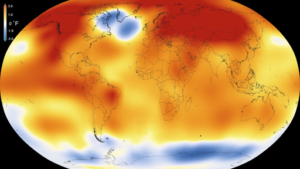
I now live in Cambridge, Massachusetts, but still work at PSU, since I teach entirely online and do the advising for the online track. While Scituate is only a half-hour’s drive from Boston, this city itself will face it’s own challenges with sea level rise, as Orren Pilkey has discussed in his wonderful book Retreat from a Rising Sea. So Scituate’s story seems very close to home.
One of the series’ articles is titled “It’s Hard to leave home,” and features photography by Liz Roll and additional reporting by Nicole Bonaccorso. This particular story focuses on flooding caused perhaps as much by poor development and planning choices as by climate change. But the lived experience -and increasing weariness- of people impacted by flooding would be familiar to families near the coast from Scituate to Colombia.
I‘ve talked before on this blog about my belief that we need to be realistic about the impact that we can have to limit global warming at this point, which will be reshaping the world for generations to come. Sometimes I worry that I am discussing the topic too much. But of all global issues, to me this seems to be by far the most important today. It’s amazing to me the extent of many communities’ denial around this issue, whether it be the immense casinos built next to the sea in Macau, or the current high rises being built on Miami Beach. As the West Coast of the United States and Canada chokes through the smoke from forest fires, and temperatures breach old records globally, we may be coming to the end of this period. This series is a great collection of articles on how climate change is reshaping our world from one community or nation to the next.
Finally, the New York Times magazine recently devoted extensive coverage to this topic. I highly recommend the article “Losing Earth: The Decade We Almost Stopped Climate Change,” by Nathaniel Rich. As the article points out, it was possible to have made different choices.
